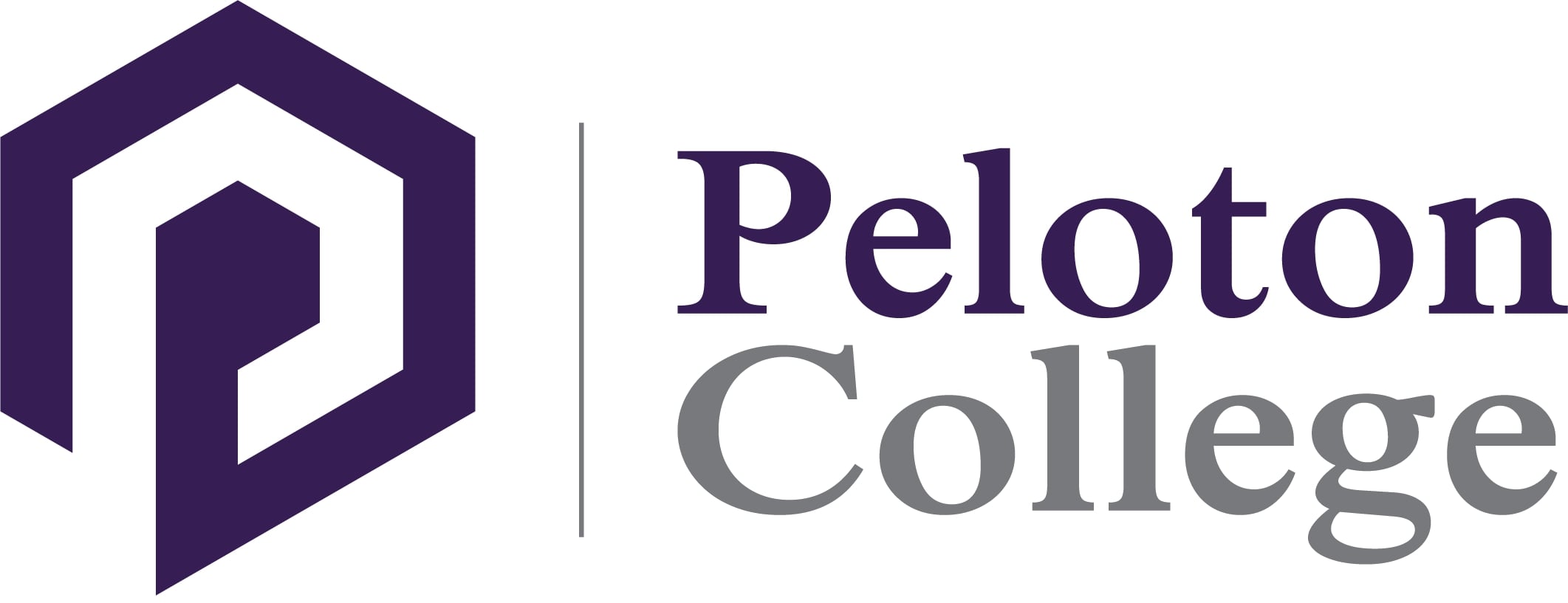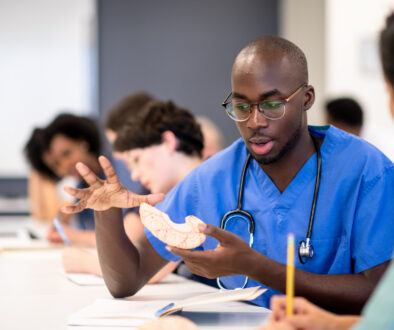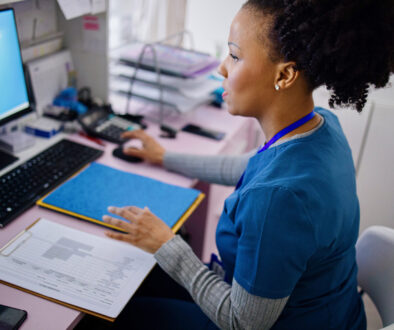Does a Medical Assistant Have to Draw Blood?

Are you interested in becoming a medical assistant but not sure if you want to draw blood? Although you will learn how to perform phlebotomy during a medical assistant program, there are many roles to play in the healthcare team. Whether you want to perform more clerical duties, support physicians during minor surgery or carve out your own niche within a medical facility, you can usually choose whether you draw blood or not. This is something important to bring up during your job interview to find the job role that matches your passion. So, what exactly does a medical assistant do?
What Does a Medical Assistant Do?
A medical assistant has many roles that they play while working at a medical facility. From greeting and rooming patients to taking vital signs and everything in between, a medical assistant is the ambassador between the patient and medical staff. Some of the specific duties include:
Greeting and Rooming Patients
The medical assistant is usually the first person a patient meets when they visit a medical facility. A good first impression is important. As a medical assistant, you will greet the patients in the lobby and walk them back to the exam room. Along the way, you may monitor the patient to identify any issues that you see as they walk and talk on their way back to the exam room. There you will take vital signs and review health history, preparing the patient for the physician.
Taking Vital Signs
Vital signs are an important measurement of the patient’s health. They are taken at each appointment in an effort to understand the trends of the patient’s health. Do they normally run hot or have a slow heartbeat? This is important to know when diagnosing and treating a patient. At the beginning of the appointment, you will take the patient’s temperature, respiration rate, heart rate, and blood pressure. It is also important to consider weight and height for some patients. The physician will use the vital signs to supplement what they see and hear to properly diagnosis and treat the patient.
Reviewing Health History
Another important duty that you will perform as a medical assistant is reviewing the health and medication history with the patient. Do they have any symptoms that the physician should be aware of? Are they still taking the prescribed medications? You will learn to follow a checklist of questions that are pertinent to understand the patient’s health. Good communication skills are paramount for both conversating with the patient and also reporting the information you gain for the physician.
Diagnostic Testing
There are a few diagnostic tests that you will learn during a medical assistant program. One in particular, you can do exclusively in a hospital or clinic, an EKG or electrocardiogram. If you don’t want to draw blood but still want to participate in the health outcomes of patients, you can focus your role on EKG exams. Other diagnostic testing includes disease cultures, Holter testing and phlebotomy. During your medical assistant program, you will learn how to prepare specimen for delivery to outside labs as well as how to process the specimen within the physician’s office.
Drawing Blood
Again, while learning how to draw blood is part of the curriculum of a medical assistant program, you don’t have to do it exclusively. It really depends on the role you take within a medical facility. Do you work in a large clinic and focus your efforts on rooming patients? Do you work in a hospital and take on the role of nursing support specialist? There are many different roles within physician’s offices and medical facilities. And, who knows, one day you may be ready to perform phlebotomy on a regular basis. The choice is yours.
Assisting with Procedures
As a medical assistant, you will support physicians on minor surgical procedures and while they perform exams with patients. You may hand the physician instruments and prepare the tray in advance of the procedure. You may be responsible for taking notes during the exam. As a medical assistant, you are a great help to physicians and nurses, helping patients with great health outcomes.
Stocking Shelves and Ordering Supplies
It is not the time to remember to stock the medical cabinet after the physician starts an exam and runs out of tongue depressors. As a medical assistant, you work closely with the supplies in a medical facility, so it is only natural that you will be responsible for stocking the shelves and ordering supplies from vendors.
Billing and Coding
Although the medical billing and coding specialists will manage most of the billing and insurance claims processing, it is up to you to offer the correct information and codes for them to do their job properly. You will work with the medical billing specialist to get reimbursement for services rendered to help keep the medical facility running smoothly. Medicare and insurance companies are sticklers about their insurance claims, so attention to detail is important.
Managing Referrals
A patient may need to see a specialist for a condition they are experiencing. Whether they need to see a dermatologist for skin disease or pulmonary specialist for a heart irregularity, the medical assistant will process the referrals that are prescribed by the physician. Also, many of these specialists employ medical assistants as well to help within their practices.
Office Correspondence
Everyone chips in to manage office correspondence and answer the phones. Whether it is answering the phone to schedule appointments or update patient records in medical software, you will support the physicians and nurses so they can see more patients.
Patient Education
As a medical assistant, you will help the patient stay healthy in between appointments with nutrition and exercise education. It isn’t enough to see the doctor once a year for a check-up, but as a medical assistant, you must also educate patients on proper health care to create good health habits. There are also instructions that you will give to the patient for aftercare of a procedure or to administer a medication. Some medications must be administered in a specific way and at unique time intervals, so you will help patients manage these medications properly.
Where Do Medical Assistants Work?
There are many places you can work as a medical assistant. Some jobs are more likely to draw blood, while others focus on alternative duties. The most common places a medical assistant will work include:
Doctor’s Office
Most medical assistants will be employed in doctor’s offices. This is because the environment needs a jack-of-all-trades to manage patients and support physicians. Although nurses can help in a larger physician’s office, their talents are needed in hospitals, long-term care facilities and other medically intensive environments. As a medical assistant, you will support the doctor and work alongside medical office assistants, medical secretaries, and medical billers. With the abundance of doctors in many different fields like family practice, dermatology, and pediatrics, there are many opportunities for you to thrive as a medical assistant.
Hospitals
Although you will find fewer medical assistants in hospitals, they do exist. They may take on clerical positions, supporting nurses in different hospital departments like emergency, urgent care, maternity, and radiology. Needless to say, if you want to work in a hospital as a medical assistant but don’t want to perform phlebotomy, there are plenty of opportunities to help out.
Clinics
Like a hybrid doctor’s office and hospital, a medical clinic manages patients and can offer urgent care. Medical assistant will help in many of the same ways from greeting and rooming patients to taking vital signs and performing phlebotomy. With the increased need for medical clinics in urban areas, there are even more opportunities for you to find the right job role that fits your passion.
Final Thoughts
So, still want to become a medical assistant? Great! Take the time to learn more about Peloton College and the medical assistant program we offer. Start a rewarding career in a growing industry as a medical assistant. Why wait? There is no time like now to take your first step to helping others and starting a career you can enjoy.
Want to Learn More?
The objective of this Medical Assistant training program at Peloton College is to prepare the student for employment as an entry-level Medical Assistant performing administrative, clerical, and clinical duties within the health care field.
The mission of Peloton College is to be the premier provider of hands-on training and education by providing students and graduates with the necessary skills to secure occupational careers. Contact us today to learn more.



